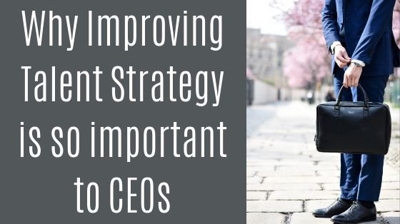Hiring the right sales professional for your organization can be an arduous task. Oftentimes, we find that organizations are frustrated because they hire a sales professional who they expect to be experienced and deliver results, but the result is often disappointing. Typically, we find that this is because the organization does not have a common sales process, proper sales training methodology or a consistent boarding process. In this blog, we will dig deeper into each one of these challenges and provide you tactics on how to address these common mistakes.
Challenge: Hiring experienced sales professionals who do not perform.
All too often, organizations with a smaller sales force fall into the trap of over paying for experienced sales professionals with the expectation that they will deliver results immediately. What we typically find is that the organization places too much emphasis on the sales professional’s overall experience and does not take into consideration the actual sales model of which the experience lies within. For example, there are 4 key sales models that we believe you should consider: Unique Value Sales, Consultative Sales, Commodity Sales and Account Selling.
A long sales process with high demand creation would be a Consultative Sales Model. Typically, these sales professionals have experience in creating demand, but they also need to understand a complex process. This is, generally speaking, an enterprise sales environment. Companies that fall within this environment are SaaS based organizations or consulting firms.
A high demand creation coupled with a shorter sales cycle, generally 6 months, would be classified as Unique Value Sales. Typically, these organizations and individuals must create demand 65% of the time, sometimes more. They're selling a solution one time and therefore relationships are not as important to their sales model as with a Consultative Sales Model. Examples of organizations that fall within this would be Capital Equipment in the medical device industry.
As we migrate towards the Account Sales Model, we see a longer sales process with low demand creation. This means that these individuals need to be highly relational because they are typically farming for additional opportunities to generate revenue for their organization. Good examples of this would be food sales or beverage sales such as Cysco Foods or 7Up.
Lastly, the Commodity Sales Model has low demand creation and a shorter sales process. Typically, these individuals need to have good control and close skills in selling a solution one time. Relationships are not as important, and they have a shorter sales cycle. An example for this model is the car sales market.
In summation, knowing which sales model you are hiring for is paramount to discerning if the experience is relevant. In addition, taking into consideration the other elements of importance as it relates to a candidate include which skills they bring to the table. What are their previous results? What is their cognitive ability relative to your sales process? Lastly, what habits have they formed? These are all essential elements to discern as well.
Challenge: Struggling to discern whether a sales professional’s interview is their best sales call ever or if it's a genuine representation of their ability.
Situation interview questions are great to conceptually qualify the candidate, it may even further a potential sales candidate through to the next step in the interview process. These questions do not address the tactical or technical abilities of the interviewee. We recommend putting together an experiential interviewing process. We suggest putting together experiential interview questions based upon your sales process. For example, if someone is required to make cold calls as part of their job, we highly recommend that you have the sales candidate make cold calls in the interview process. If someone is going to be leveraging LinkedIn to prospect, we would recommend you have the candidate demonstrate their LinkedIn prospecting abilities live in an interview session. If you have a consultative sales process, we recommend you role play and ask them to treat you like a potential client. Ask them to sell to you the way they commonly would. We would not, however, recommend having them conceptually talk about how they would walk you through a problem as that is only addressing the conceptual nature of the sales process not the actual technical ability to execute it.
If you were to adopt a conceptual and technical interviewing process for your organization, we believe that you would be able to weed out some of those candidates in a more rapid fashion than otherwise.
Challenge: Your organization does not have a formal recruiting process.
The very definition of insanity is doing the same thing over and over and expecting a different result. We commonly hear this process: place a job posting, conduct a phone interview, bring a candidate in for a formal interview, do a background check and finally, offer them the position. Although one could argue this is a formal process, we would argue is that it does not allow enough time to adequately discern that the candidate is the best one for the position. Often times, we find that organizations qualitatively evaluate candidates and fail to quantitively evaluate them.
You might be asking, what is the difference between qualitative and qualitative? Qualitative would be the questions that you have the candidate that answer for you in the interview. Many recruiters have fallen in the trap of hiring relationship driven sales professionals because they like them and they get along so well in the interview. This is not an indication that the candidate will perform for you in your selling environment. Thinking ahead, it is essential that you assign a value to the answers the candidate gives. This will allow you to pull away from the emotional attachment and drive the decision to be more objective. We recommend you do this by creating a formula based upon what is most important for your organization to have as it relates to the skills, experience, attitude, cognitive habits and cognitive ability for each candidate. You can rate the candidates over time with each step in the interviewing process to give them an actual number. We would recommend having multiple members within your organization asking the same questions, so the results are objective rather than emotional.
Challenge: Not having an adequate on boarding or sales process for employees.
There are 4 roles of a leader; to coach, train, mentor, and supervise their employees. It is common that the owners of the organizations we work with have all departments report to them. This is typical in the small to mid-markets, which we serve. We find they tend to hire a sales person to essentially hire away their problems. However, if they're not spending enough time to coach, train, mentor and supervise them, they are doing a disservice to them. If the right amount of time and energy are not dedicated to their development it is likely that they will fail. Knowing this, the more processes and procedures you put in place for your organization to ensure a consistent replication the better off you will be. One of the ways to do this is to have a consistent sales on boarding and sales process in general.
Although we are biased, we firmly believe that the Sandler™ methodology of training allows for a consistent process and allows you to adequately discern if the opportunity that your sales team is working on is real or not. Sandler™ focuses on ensuring that you have the right balance of behaviors attitudes and techniques to close deals more effectively. If you or your organization would be interested in talking to Lift Consulting about our services or some of the challenges that you are faced with in your organization in regards to the recruiting process, we welcome the opportunity speak to you.

Dan Truehl, Director of Recruiting and Consulting Services for Lift Consulting, graduated from the University of Wisconsin-Madison. Dan comes from a family of business owners and has experience in sales and the sales process.






